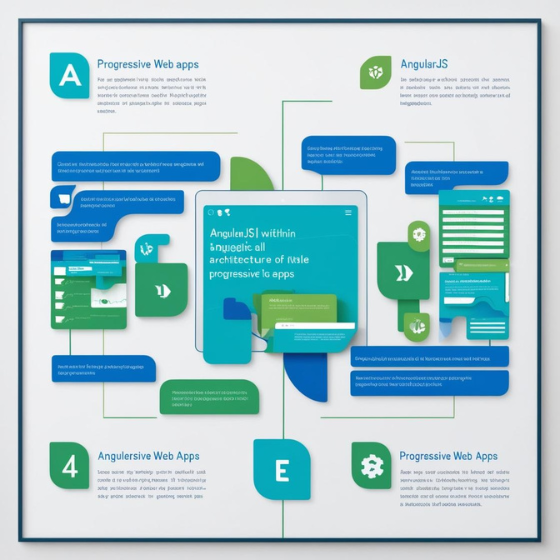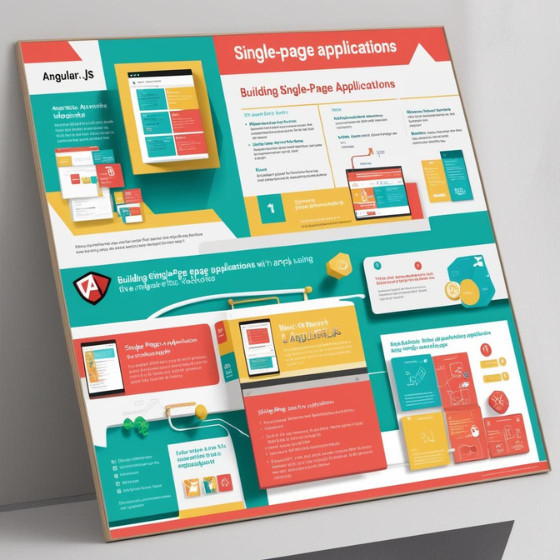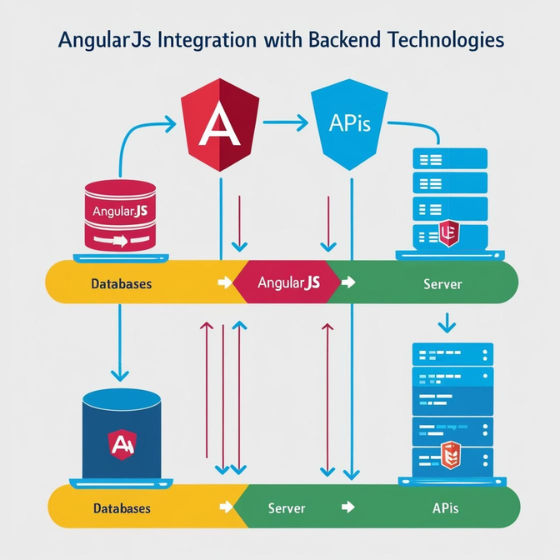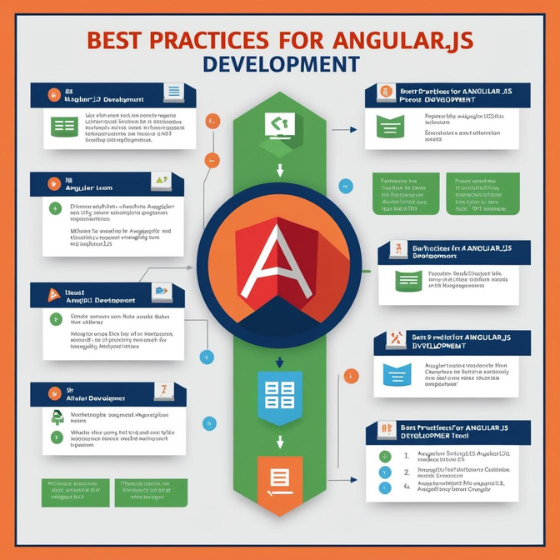The Role of Angular.js in Progressive Web Apps (PWAs)
Introduction
The digital landscape is evolving rapidly, and businesses are constantly looking for ways to enhance their web applications to meet user expectations. In recent years, Progressive Web Apps (PWAs) have gained immense popularity for offering an app-like experience on the web. According to a study by Google, PWAs can increase conversion rates by up to 50%, highlighting their significance in the modern web ecosystem. In addition, they are highly effective for businesses aiming to improve user engagement.
One of the frameworks that has been instrumental in the development of PWAs is Angular.js. The role of Angular.js in Progressive Web Apps (PWAs) cannot be overstated, as it provides a robust structure for building fast, reliable, and engaging applications that work seamlessly across all devices and platforms. Therefore, in this blog, we will explore how Angular.js powers PWAs, why it’s an excellent choice for developers, and best practices for leveraging Angular.js to create outstanding PWAs.
What Are Progressive Web Apps (PWAs)?
Before diving into the role of Angular.js in Progressive Web Apps (PWAs), let’s first understand what PWAs are and why they are so important. PWAs are web applications that deliver a native app-like experience through the browser. Unlike traditional websites, PWAs can function offline, send push notifications, and offer fast loading times, all while being easily accessible through a URL without the need to download from an app store.
Key characteristics of PWAs include:
- Responsiveness: PWAs adapt to different screen sizes and devices, ensuring a seamless experience on mobile phones, tablets, and desktops.
- Offline Functionality: Thanks to service workers, PWAs can continue to work offline or in low-network conditions.
- App-Like Feel: PWAs provide an immersive, app-like user experience with smooth navigation and interactions.
- Push Notifications: Moreover, they can send real-time notifications to users, keeping them engaged and informed.
Given these features, PWAs offer businesses a powerful way to deliver fast, engaging, and reliable web applications that drive conversions and improve user satisfaction. As a result, PWAs are quickly becoming a preferred choice for businesses aiming to provide high-quality user experiences.
How Angular.js Supports PWAs
Angular.js is a popular front-end JavaScript framework developed by Google. Furthermore, its rich set of tools and built-in features make it a great choice for building scalable and performance-oriented web applications, including PWAs. Let’s explore the role of Angular.js in Progressive Web Apps (PWAs) in detail.
1. Service Workers and Caching
One of the standout features of PWAs is their ability to function offline. This is where Angular.js comes into play. With the help of Angular’s service worker support, developers can easily implement caching strategies to store assets, data, and other resources locally on a user’s device.
Angular provides the @angular/service-worker module, which simplifies the process of setting up service workers. This allows PWAs to load quickly, even when there is no network connection, by serving cached content. By leveraging this feature, you can enhance the performance of your app and deliver a flawless experience to users, even in low connectivity areas.
2. App Shell Architecture
Angular.js supports the App Shell Architecture, which is a technique that allows the core structure of a web application to load quickly, even when the content is still being fetched from the server. In the context of PWAs, the app shell serves as a placeholder for the app’s UI, enabling the application to load almost instantly and provide users with an immediate, interactive experience.
By using the App Shell Architecture with Angular.js, you can create a fast, reliable PWA that offers minimal load times and smooth transitions between pages. Consequently, users will enjoy a seamless experience with faster interaction times.
3. Responsive Design
Angular.js is highly compatible with CSS frameworks like Bootstrap and Material Design, which allow developers to create responsive and mobile-first designs. A responsive layout ensures that your PWA looks great and functions smoothly across all devices, from smartphones to tablets to desktops.
Angular’s flexibility and integration with modern front-end libraries enable developers to easily design applications that provide a consistent and user-friendly experience, regardless of the device or screen size. Therefore, your users can expect the same quality experience no matter what device they use.
4. Push Notifications
Angular.js also facilitates the integration of push notifications into your PWA. Push notifications are a key component of PWAs, as they allow businesses to re-engage users by sending timely updates, promotions, and reminders, even when the app is not open.
Angular’s support for the Push Notifications API makes it easy to implement push notifications in your PWA. By utilizing service workers and background sync, Angular helps send notifications to users in real-time, ensuring they stay informed and connected to your application.
5. Optimized Performance
When building a PWA, performance is a critical factor that affects user experience and engagement. Angular.js optimizes the performance of PWAs through a variety of built-in features, such as:
- Lazy Loading: Angular.js allows you to load only the necessary parts of the app when needed, reducing the initial load time and improving the overall performance.
- Ahead-of-Time (AOT) Compilation: AOT compilation pre-compiles your Angular code during the build process, leading to faster rendering and improved performance, especially on mobile devices.
- Tree Shaking: Angular automatically removes unused code during the build process, ensuring that only the required parts of your application are bundled and delivered to the browser.
These performance optimizations are essential for creating fast, responsive PWAs that deliver a seamless user experience. As a result, users are more likely to stay engaged with your application, driving retention and growth.
Best Practices for Building PWAs with Angular.js
Now that we’ve explored the role of Angular.js in Progressive Web Apps (PWAs), let’s look at some best practices to help you maximize the potential of Angular.js when building PWAs.
1. Focus on Performance
Performance is key to any PWA, and Angular.js provides various features to optimize performance, including lazy loading, AOT compilation, and code splitting. Always prioritize performance when building PWAs to ensure they load quickly and offer a smooth, app-like experience.
2. Use Angular CLI for Easy Setup
Angular CLI (Command Line Interface) is a powerful tool that helps developers set up and manage Angular applications. By using Angular CLI, you can quickly scaffold a PWA and implement essential features like service workers, routing, and offline functionality. The Angular CLI simplifies the development process, saving time and effort while providing a solid foundation for your PWA.
3. Implement Proper Caching Strategies
Caching is crucial for PWAs, as it enables offline functionality and improves performance. Use Angular’s service workers to implement effective caching strategies for static assets, API responses, and other resources. Consider using cache-first strategies for static content and network-first strategies for dynamic content to balance performance and reliability.
4. Ensure Accessibility
PWAs need to be accessible to all users, including those with disabilities. Make sure to implement proper accessibility standards and best practices, such as using semantic HTML, providing alternative text for images, and ensuring keyboard navigation support. Angular.js provides tools like Angular Material that help build accessible user interfaces.
5. Test Across Multiple Devices and Browsers
Testing is essential when building PWAs. Since PWAs are designed to work across various devices and browsers, it’s important to test your app on different screen sizes, operating systems, and browser versions to ensure compatibility and optimal performance.
Conclusion
The role of Angular.js in Progressive Web Apps (PWAs) is undeniable. With its powerful features like service workers, app shell architecture, responsive design, and optimized performance, Angular.js is the perfect framework for building fast, reliable, and engaging PWAs. By following best practices and leveraging Angular’s built-in tools, you can create PWAs that offer users an app-like experience with the speed and reliability of the web.
Are you ready to build a cutting-edge PWA for your business? Explore Sodio’s PWA development services to learn how we can help you create a fast, seamless, and high-performing Progressive Web App that drives user engagement and business growth.







